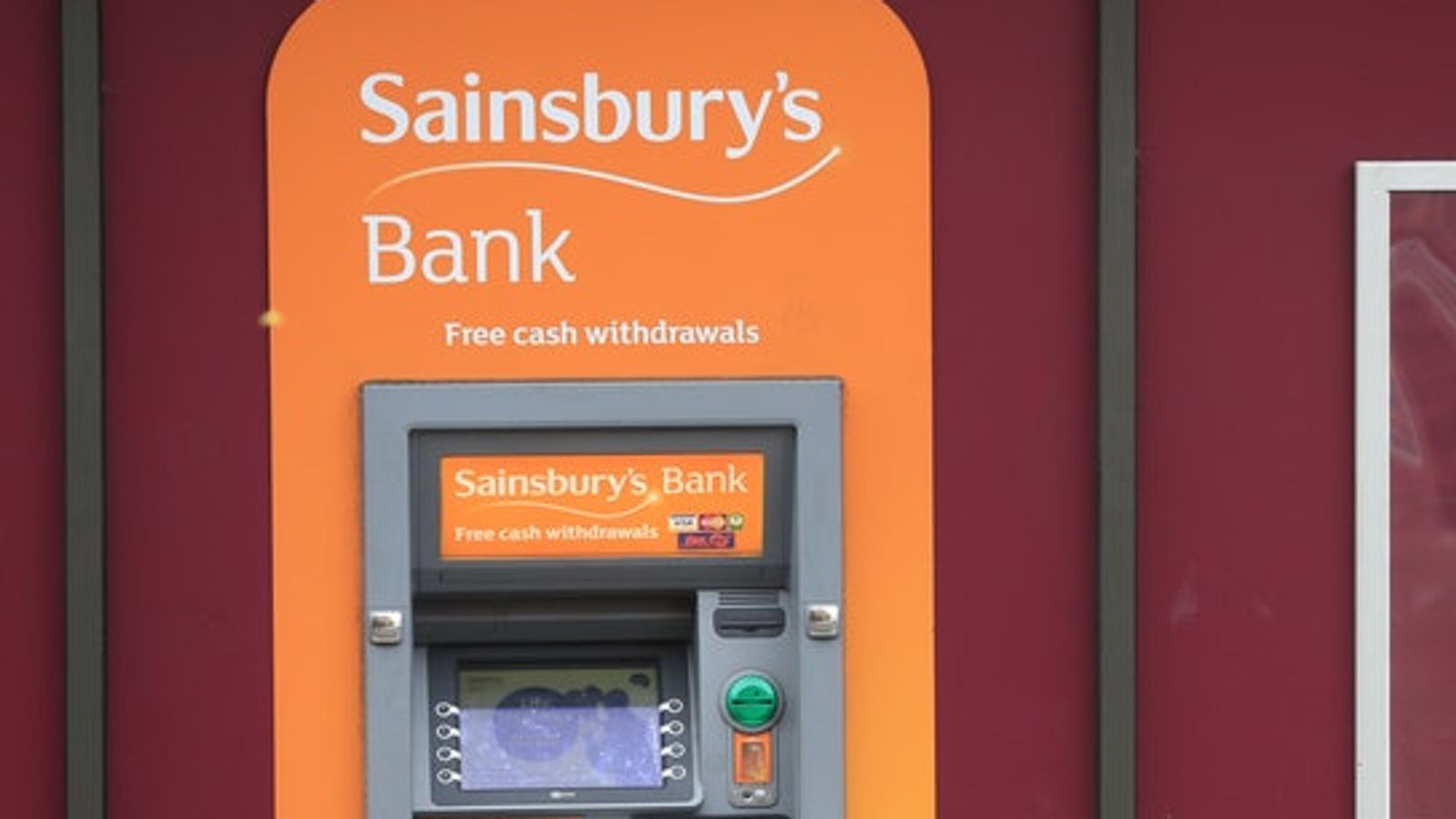The new chief executive of J Sainsbury is plotting a sale of its banking arm as ultra-low interest rates diminish the prospects of making a meaningful return from the business.
Sky News has learnt that Sainsbury’s has begun sounding out potential buyers of the unit, which boasts more than 2m customers across a range of products including mortgages, home insurance and credit cards.
Sources said this weekend that Simon Roberts, who took over as the grocer’s CEO earlier this year, had asked UBS, its corporate broker and financial adviser, to advise it on options for Sainsbury’s Bank.
The move comes amid a torrid environment for medium-sized banks, with near-zero rates and intense price competition depressing margins and casting doubt over the long-term viability of many standalone lenders.
The possibility of negative rates, which has been flagged by banking regulators in recent weeks, has exacerbated concerns among bank directors about their
Sainsbury’s put a deal to sell its £1.9bn mortgage book to Nationwide, the UK’s largest building society, on hold after the coronavirus pandemic struck, and has said it will not inject further capital into Sainsbury’s Bank.
Mr Roberts may come under pressure to confirm that it is exploring options for the bank when the group reports half-year results next week.
One idea said to be under consideration at the supermarket chain is the sale of a stake in the bank to a larger high street lender, rather than an outright disposal of the business.
It was unclear this weekend whether more radical alternatives, such as closing the banking operations, were being explored.
Sainsbury’s took full control of the division in 2013, when it paid £260m to buy a 50% shareholding from joint venture partner Lloyds Banking Group.
The grocer launched its financial services business in 1997, with the promise of targeting customers through data gleaned from customer loyalty schemes stoking expectations that it could become a major profit engine for the group.
Despite taking full ownership of the Nectar loyalty programme, however, that potential has never been fully realised.
Sainsbury’s also owns the Argos Financial Services business following its takeover of the general merchandise retailer in 2016.
Tesco and the Co-op Group have also built a presence in the banking market, with the latter’s business almost collapsing twice in the last decade.
Britain’s biggest retailer, meanwhile, has also pulled out of the mortgage market, selling its £3.8bn book to Lloyds last year.
Last year, Sainsbury’s brought in Jim Brown, a heavyweight former Royal Bank of Scotland executive, to run its banking arm, and said it anticipated “no need for further capital injections after £35m in H1 2019/20”.
The company also said it would simplify the banking business and transform its cost base, with a target of reducing its cost:income ratio to roughly 50% within five years.
It set a further target of doubling underlying pre-tax profit and returning cash to the parent company by 2025.
Earlier this year, Sainsbury’s Bank said that Roger Davis would step down as the bank’s chairman.
It has yet to name a successor.
A spokeswoman for Sainsbury’s declined to comment on Saturday.
